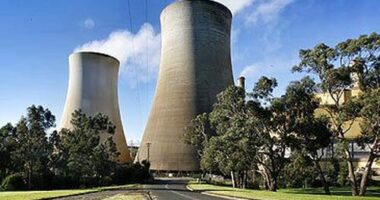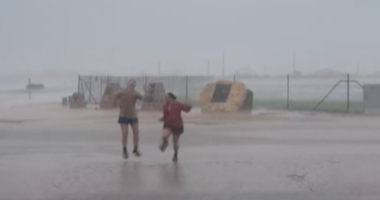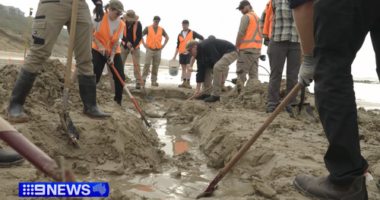Share this @internewscast.com
These grievances have resulted in numerous protests, with substantial convoys of fire engines and tractors making demonstrations in Melbourne and other smaller cities across Victoria in recent years.
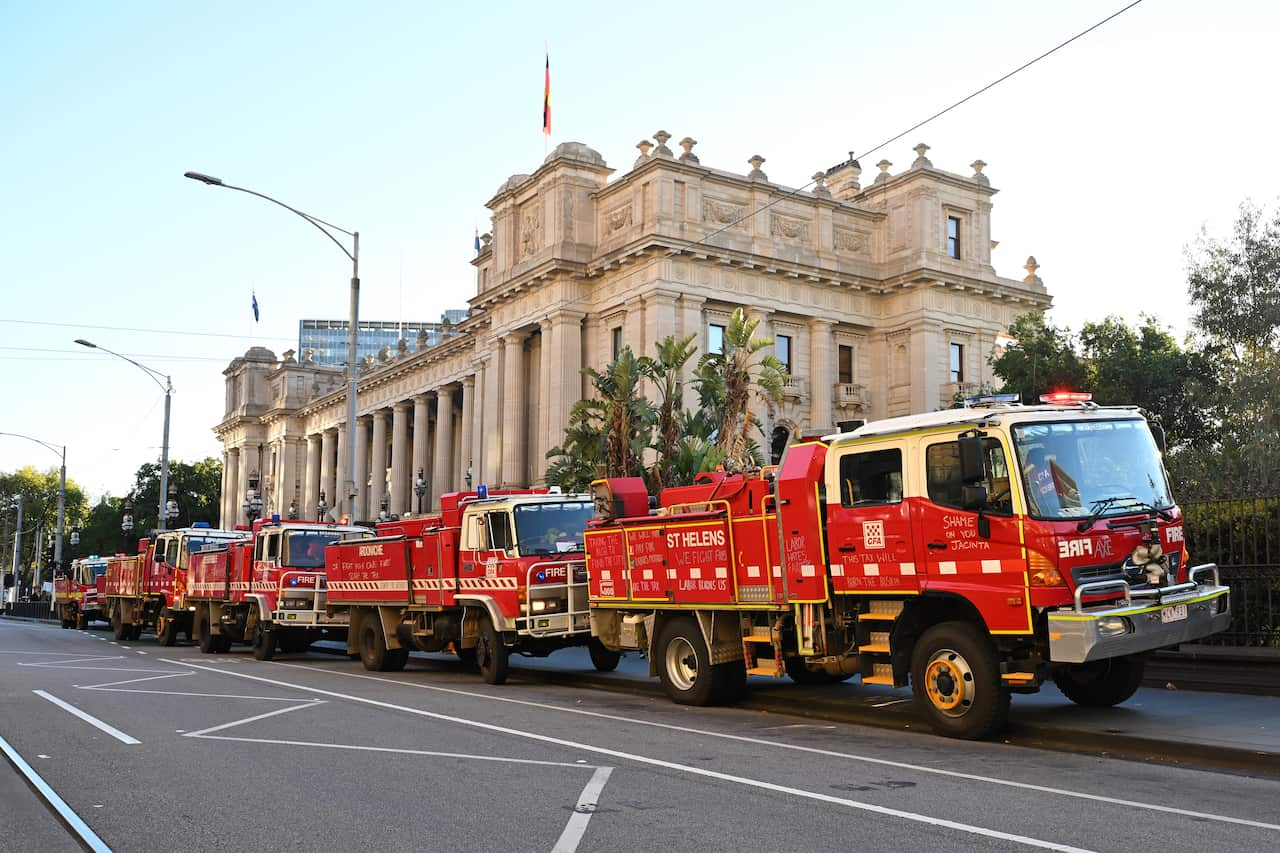
On 20 May, several CFA fire trucks were driven into Melbourne as part of a protest against the state Labor government’s emergency services levy. Source: AAP / James Ross
‘This is these people’s castles’
Transmission company Ausnet has attributed project delays to alterations in the route and design, which included “extensive updates such as engineering design, planning, and community consultation,” according to a spokesperson’s statement reported by The Weekly Times in April.
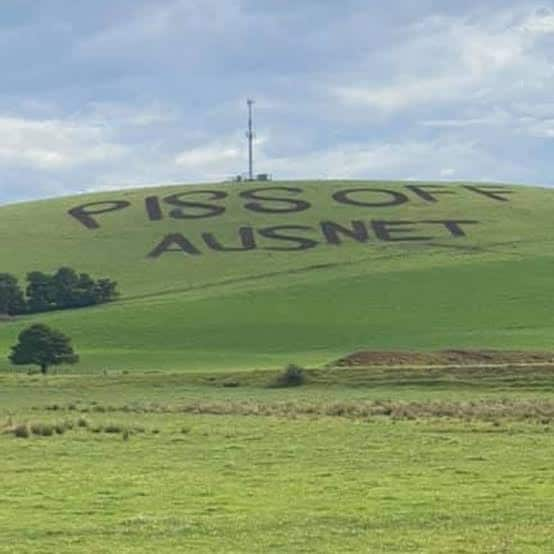
Local farmer Will Elsworth claims that the ‘Piss Off Ausnet’ hill — initially constructed by another local farmer several years ago — has now become “the most recognized landmark in the Hepburn Shire”. Source: Supplied / Will Elsworth
At the Bush Summit, a member of the public asked Albanese: “Why are regional communities paying the cost for renewable energy? Where is the social licence? Where is the regulation to protect our communities, value our farmland and preserve our environment?”
The Victorian government has committed to pay landowners $8,000 a year for every kilometre of transmission infrastructure for 25 years.
Elsworth said he wasn’t familiar with the moment in which the prime minister’s motorcade was reportedly chased by tractors.
Discontent ‘urgently needs to be addressed’
Brett Hosking, president of the Victorian Farmers Federation, stated that the proposed laws would only contribute to “greater discontent, distrust, and disharmony in the community, resulting in a stronger, longer-lasting opposition, making the transition much more prolonged”.
Conversely, in a recent submission to the government, Tony Goodfellow, Re-Alliance policy and engagement manager, emphasized that although support exists, it is fragile and there is “growing discontent that urgently needs to be addressed”.
Emergency services levy
Councils are tasked with collecting the new levy — a responsibility that some have not warmly embraced.




